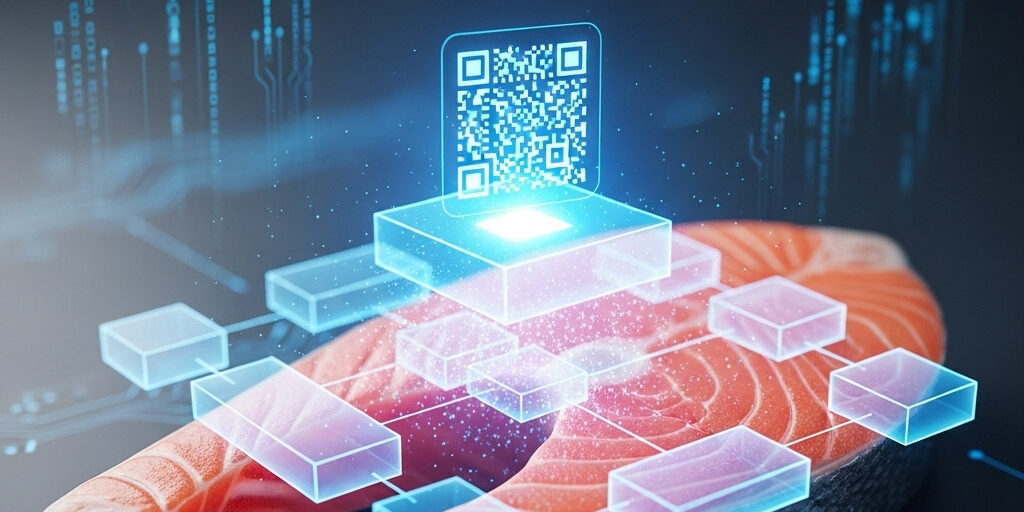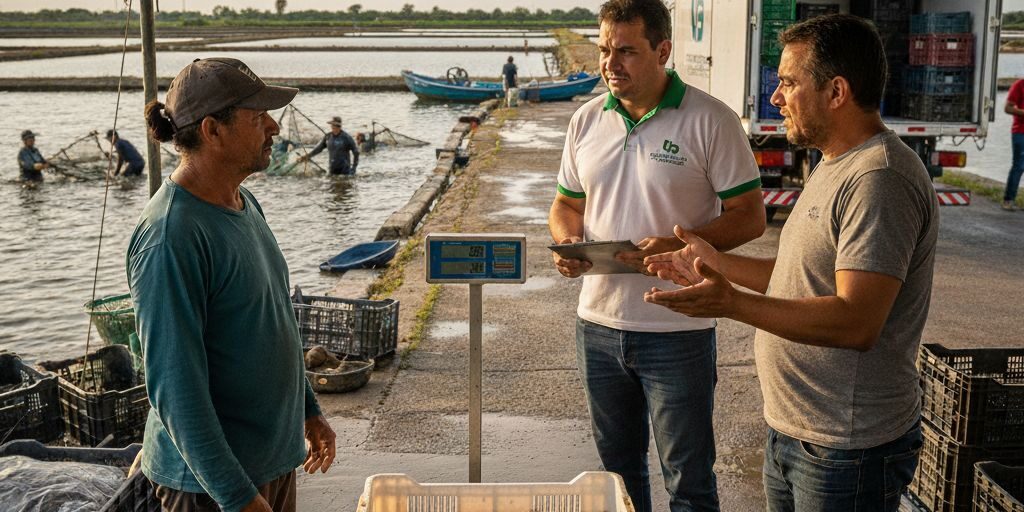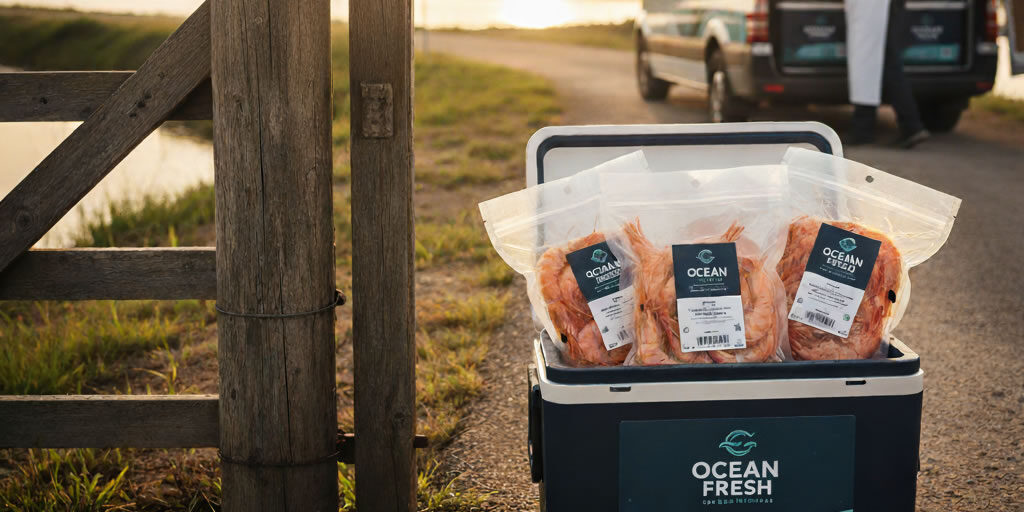- Software Gestor para Aquicultura
- (85) 2139-6730
- contato@despesca.com.br
Blockchain in Aquaculture: The Technology that Ensures Full Traceability and Adds Value to Your Product

Organic Aquaculture: What It Takes to Produce and Certify Your Shrimp or Fish
08/09/2025
Animal Transit Guide (GTA): Everything You Need to Know to Legally and Effectively Move and Receive Your Post-Larvae and Fingerlings
10/09/2025The journey of farmed fish and shrimp, from the farm to the consumer’s table, involves multiple stages and intermediaries. This supply chain complexity can create distrust, make it difficult to identify the source of sanitary problems, and open loopholes for fraud, such as species substitution or selling farmed products as wild-caught. Blockchain offers a robust solution to these challenges by creating a permanent, tamper-proof digital record of every step in the production and logistics process.
What is Blockchain and How Does it Apply to Aquaculture? In simple terms, blockchain is a distributed and immutable digital ledger. Each “block” in the chain contains a set of transactions and, once added, cannot be altered or removed. In aquaculture, every event in an animal’s life—from the origin of post-larvae or fingerlings, the type of feed used, health management practices, and water parameter measurements, to processing, transportation, and sale—can be recorded as a transaction in a block.
This chain of information is shared among all authorized participants in the supply chain (producers, processors, distributors, retailers, and even the end consumer). Cryptography ensures the security and authenticity of the data, creating a single, reliable source of truth about the product’s history.
Competitive Advantages of Blockchain-Based Traceability Implementing a traceability system based on blockchain transcends simple regulatory compliance, becoming a powerful market differentiator.
- Consumer Trust and Transparency: By scanning a simple QR Code on the packaging, consumers can access the product’s entire history. Information about the farm, sustainable farming practices, responsible use of inputs, and harvest date creates a direct and transparent connection, strengthening brand trust and justifying a premium price.
- Enhanced Food Safety: In the event of an adverse incident, such as contamination, the technology allows for the precise and rapid identification of the problem’s origin. This enables targeted and efficient recalls, minimizing financial losses and protecting public health and the company’s reputation.
- Combating Fraud and Illegal, Unreported, and Unregulated (IUU) Fishing: The immutable record guarantees the product’s authenticity. It becomes virtually impossible to mislabel species or introduce products from illegal or undeclared sources into the supply chain, ensuring consumers receive exactly what they paid for and protecting producers who follow best practices.
- Access to Demanding Markets and Certifications: International markets, especially in Europe, North America, and Asia, have strict regulatory and sanitary barriers. Blockchain traceability serves as robust documentary proof of compliance with these requirements, while also facilitating the acquisition and maintenance of quality and sustainability seals and certifications, such as the Aquaculture Stewardship Council (ASC) and Best Aquaculture Practices (BAP).
- Management Optimization and Operational Efficiency: The digitization of records along the supply chain improves communication between links, optimizes inventory control, reduces waste, and provides valuable data for strategic decision-making, resulting in greater efficiency and lower operational costs.
The Fundamental Role of Management Systems The effectiveness of a blockchain system is directly dependent on the quality and integrity of the data entered into it. This is where the use of aquaculture management software, such as Despesca, becomes an indispensable prerequisite.
Before considering implementing blockchain, a producer needs a robust system to collect and organize farm information in a standardized and reliable manner. Despesca centralizes all crucial data from the production cycle: biometrics, feed consumption, water quality parameters, health incidents, inventory control of inputs, and costs.
This preliminary data organization is the foundation upon which blockchain traceability will be built. An efficient management system ensures that the information entered into the blockchain is accurate and verifiable, making the entire process trustworthy. Despesca acts as the starting point, the primary data source that will feed the immutable record, preparing the farm for the future of transparency in aquaculture.
In summary, blockchain technology is no longer a distant promise but a reality shaping the future of food production. For the aquaculturist, adopting it—starting with data organization through a management system like Despesca—is a strategic step to ensure competitiveness, add value to their product, and meet the demands of an increasingly conscious and demanding consumer.



